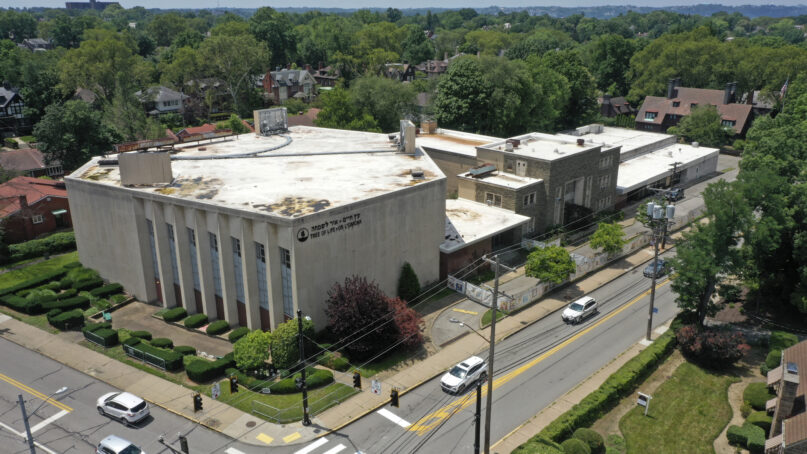PITTSBURGH (RNS) — Nearly five years since he entered the Tree of Life synagogue in Pittsburgh and methodically slaughtered 11 Jewish congregants, Robert Bowers will face the death penalty after a jury unanimously decided that he deserved the maximum sentence for each of the murders. His attack is the worst act of antisemitism in U.S. history.
Shortly before noon on Wednesday (Aug. 2), the federal judge in the case, Robert Colville, reviewed how the jurors voted on each of the 115 mitigating factors they were asked to consider. None of the jurors was persuaded by arguments that Bowers had brain abnormalities, suffered from schizophrenia or was motivated by delusional beliefs about Jewish people being used by Satan to bring about the end of the world.
Rabbi Jeffrey Myers of the Tree of Life synagogue celebrated the “immense embrace” of the U.S. justice system at a news conference after the verdict, saying it confirmed that “our government doesn’t condone antisemitism.”
“We have the right to practice our Judaism, and no one will ever take that right away from us,” Myers said.
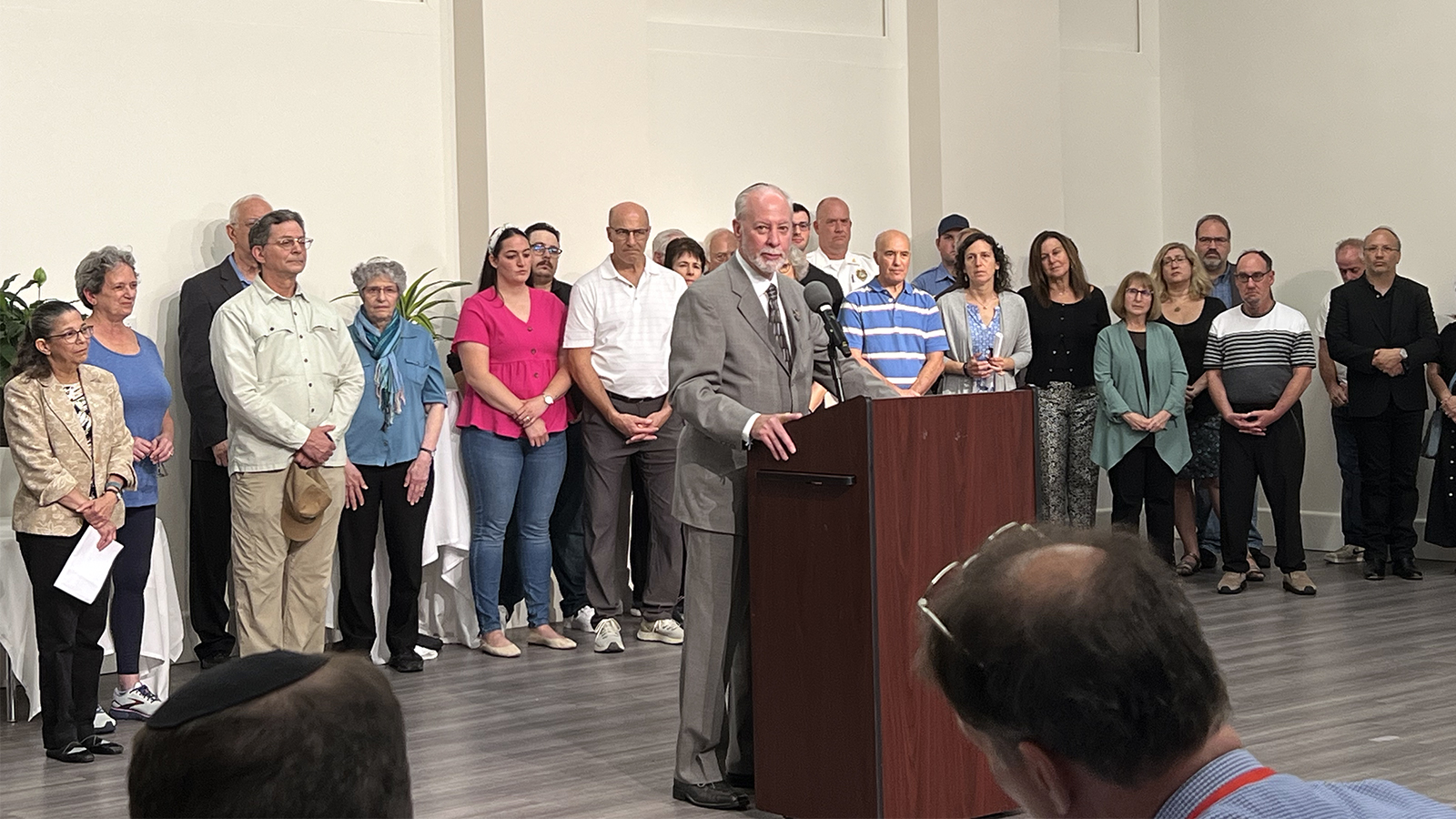
Rabbi Jeffrey Myers speaks to the media, surrounded by survivors and families of victims, after the jury’s verdict Aug. 2, 2023. Robert Bowers will face the death penalty for killing 11 people at the Tree of Life synagogue in Pittsburgh in 2018. RNS photo by Kathryn Post
In the coming days, survivors of the attack will address the court about the impact of the massacre on their lives. Appeals by Bowers’ defense team may delay his execution, however, for years to come.
On Oct. 27, 2018, Bowers, a truck driver from the Pittsburgh suburb of Baldwin, drove to Tree of Life synagogue in the Squirrel Hill neighborhood, the heart of Pittsburgh’s Jewish community, where three congregations were holding Shabbat services. After the defendant shot 11 of the gathered worshippers with an AR-15 rifle, he reportedly told law enforcement that “Jews are the children of Satan” and told a SWAT officer that “all these Jews needed to die.”
Of the nine victim families (the 11 victims included two bothers and a married couple), seven have previously indicated support for the death penalty.
Bowers, 50, was found guilty of all 63 charges, including 22 capital offenses, last month. He was then eligible for the death penalty under Pennsylvania law.
The jurors began deliberations on sentencing Tuesday, following instructions in a 26-page jury response form that told them to weigh aggravating factors against mitigating factors. The form listed Bowers’ apparent lack of remorse and bias against members of the Jewish faith as aggravating factors, while the mitigating factors included his reported brain abnormalities, history of attempted suicide and the defense’s claim that Bowers was motivated by a “delusional belief” that Jewish people are tools of Satan in a war between Satan and God.
A few minutes after going into deliberations, the jury requested to see the weapons Bowers used in the shooting and was ushered back into the courtroom to view them. But after a marshal standing nearby answered jurors’ questions about the weapons, the defense called for a mistrial, saying the marshal’s comments were not evidence. The judge denied the motion for a mistrial but instructed the jury to disregard their discussion with the marshal.
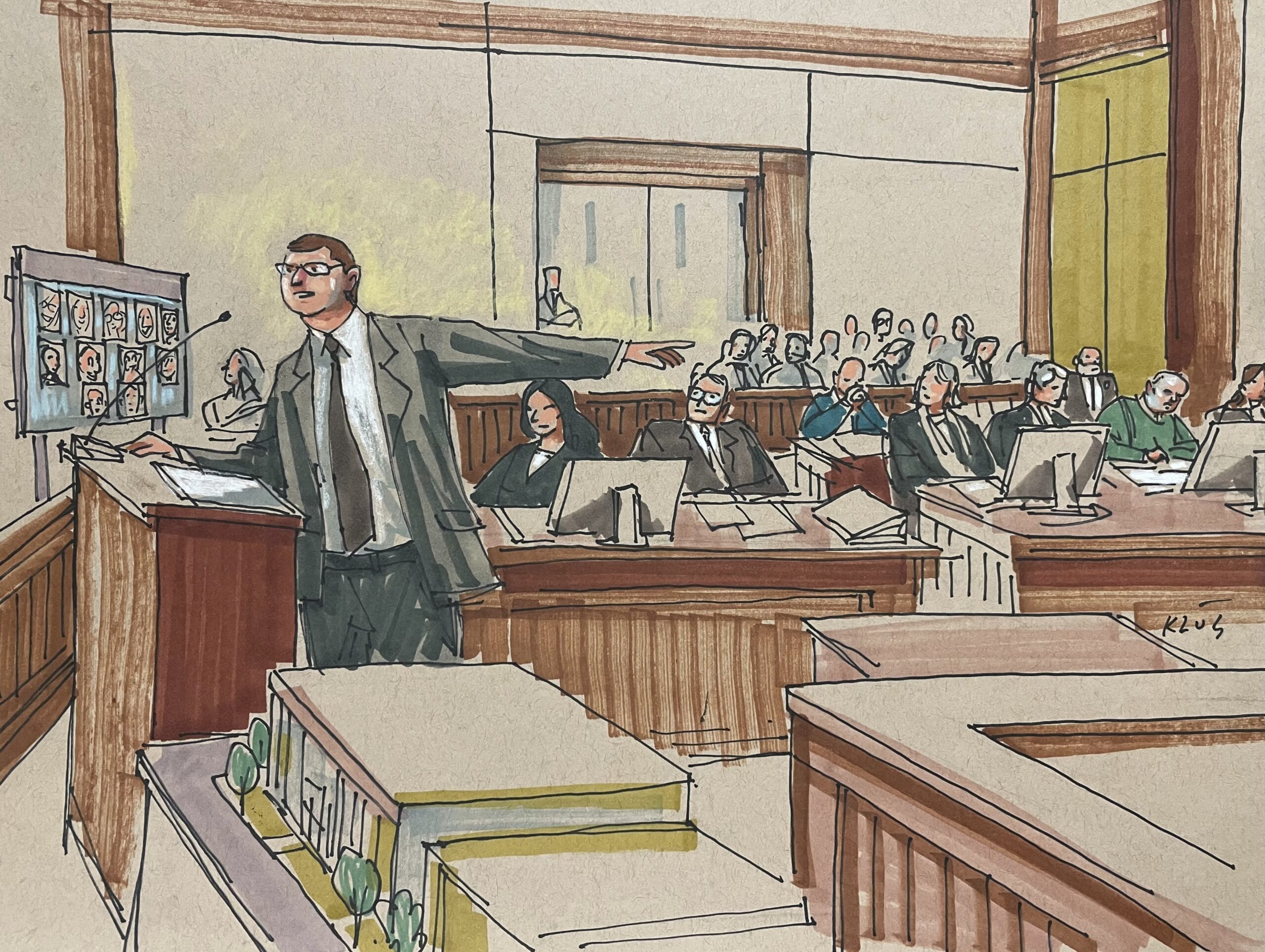
U.S. Attorney Eric Olshan argues before a federal jury that 2018 Pittsburgh synagogue attack defendant Robert Bowers should receive the death penalty, July 31, 2023. Bowers, wearing green, was previously found guilty of killing 11 people in the deadliest antisemitic attack in U.S. history. (Dave Klug via AP)
In making closing arguments in the sentencing phase on Monday, federal prosecutors argued that Bowers deserved “the most severe punishment under the law,” citing his unchecked antisemitism and consistent lack of remorse.
“He turned an ordinary Jewish Sabbath into the worst antisemitic mass shooting in U.S. history, and he is proud of it,” said prosecutor Eric Olshan.
The defense appealed to jurors’ empathy, citing Bowers’ mental health struggles and traumatic childhood, which they claimed contributed to his having delusional beliefs.
“All we can really do is make the right decision going forward,” said defense attorney Judy Clarke. “And that is life.”
Jewish institutional responses to the verdict were short and muted. They thanked the jurors, the judge, U.S. attorneys and the Justice Department for taking the case and administering justice.
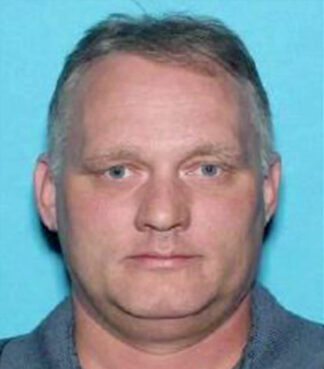
FILE – This undated Pennsylvania Department of Transportation photo shows Robert Bowers. (Pennsylvania Department of Transportation via AP, File)
Ronald S. Lauder, president of the World Jewish Congress, said after the verdict was announced: “Today’s decision represents a measure of justice for the slaughter of 11 Jewish worshippers on that fateful day in 2018 at the Tree of Life synagogue. Nothing can ever bring back the people killed in the attack, the deadliest act of antisemitism in the history of the United States.”
Those closer to the events in Pittsburgh spoke more forcefully.
“When a horrendous crime is committed, it deserves the most severe penalty,” said Carol Black, the sister of victim Richard Gottfried. “And the current state of the law in the United States calls for the penalty that was decided upon by the jury, who worked tirelessly throughout this entire trial.”
Martin Gaynor, a survivor who worshipped with Dor Hadash Congregation, added: “This trial is also important in sending a signal in the strongest possible terms that antisemitism and hate have no place in our hearts, no place in our communities, no place in our country, and will not be tolerated. ”
But the death penalty also engendered disagreement, especially among members of Dor Hadash and New Light congregations, which shared space at the Tree of Life synagogue.
“Many of our members prefer that the shooter spend the rest of his life in prison, questioning whether we should seek vengeance or revenge against him or whether his death would ‘make up’ for the lost lives,” a statement from the New Light Congregation said.
The statement went on to say that the New Light congregation nonetheless accepted the jury’s verdict and found merit in arguments in favor of the death penalty.
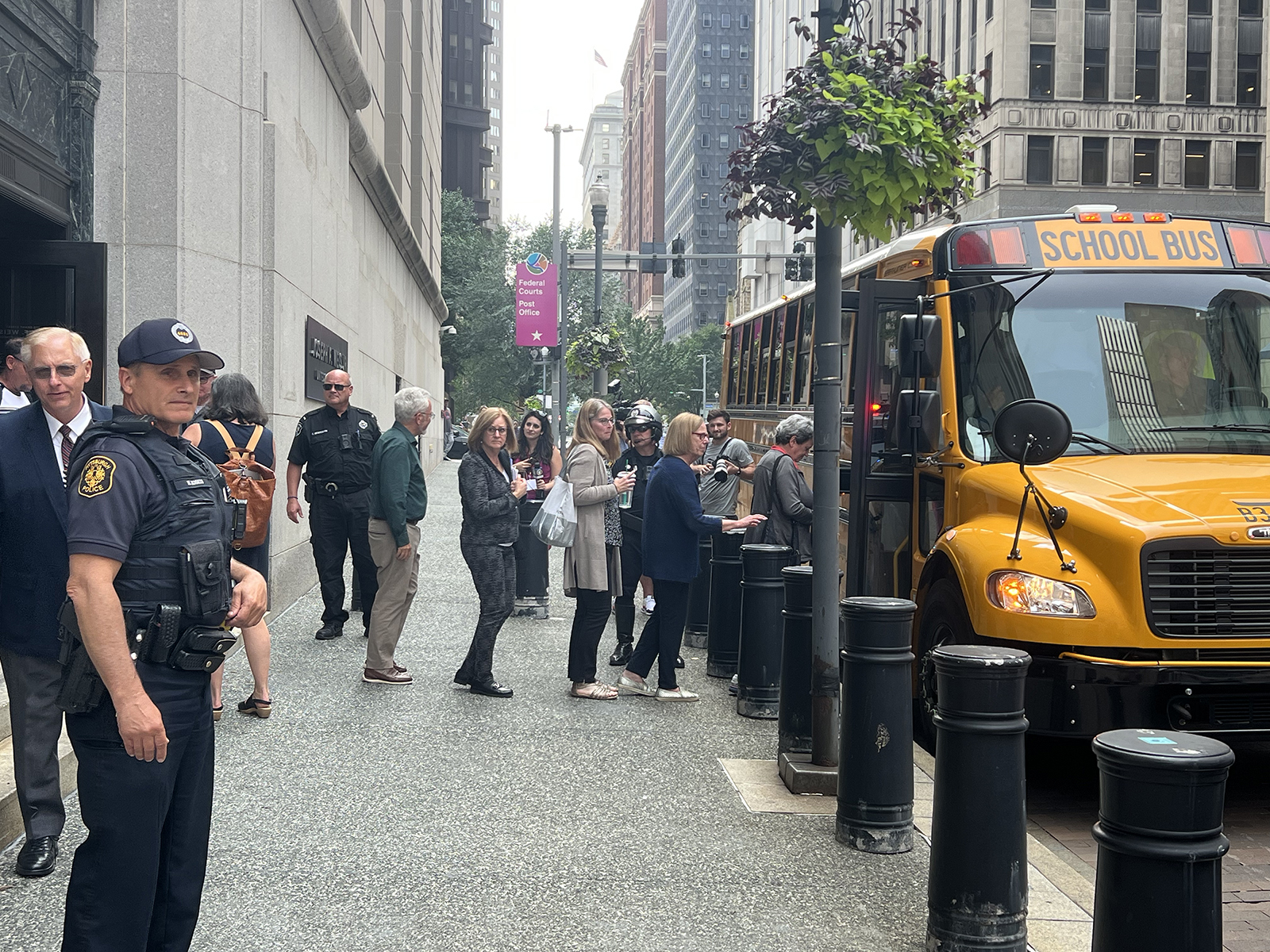
Survivors and family members of victims board a bus outside the Joseph F. Weis Jr. U.S. Courthouse in Pittsburgh, Aug. 2, 2023, after the jury’s verdict. RNS photo by Kathryn Post
Many Pittsburgh Jews said the verdict presented a chance to move on. But it may take years before Bowers is executed. That’s because any person who has been sentenced to the death penalty has a right to appeal. Typically, an appeal goes before a judge in the state’s appellate court. But this is a federal case, so an appeal will move to federal district court and finally to the Supreme Court if there are constitutional issues involved.
“An appeal here is a foregone conclusion,” said David Harris, a law professor at the University of Pittsburgh specializing in criminal law. “It will move along more rapidly than it would if it was a state case, but it’s not gonna move fast in any case.”
Harris, who advised the victim families through the legal maze of a capital trial at the request of Pittsburgh’s 10.27 Healing Partnership, added: “This will be a period of years.”
(Yonat Shimron contributed to this report.)
